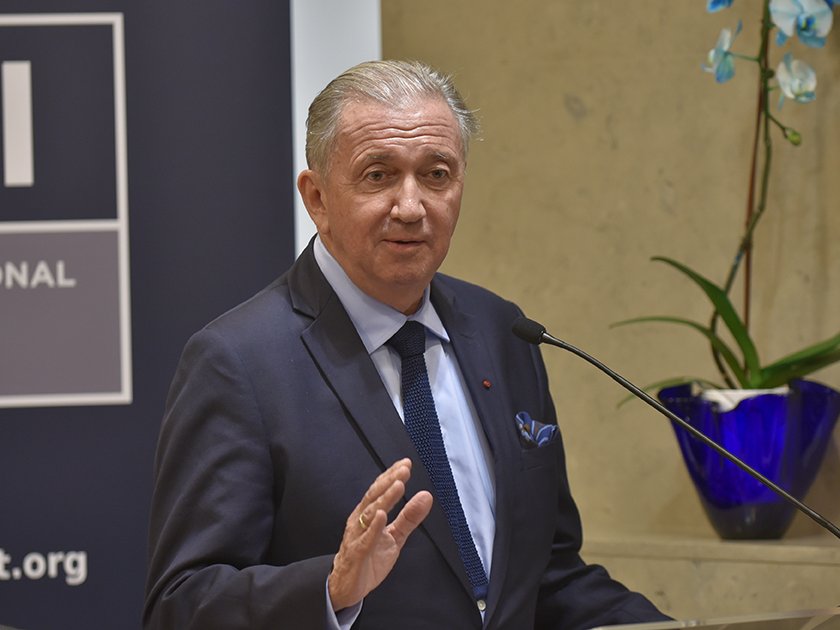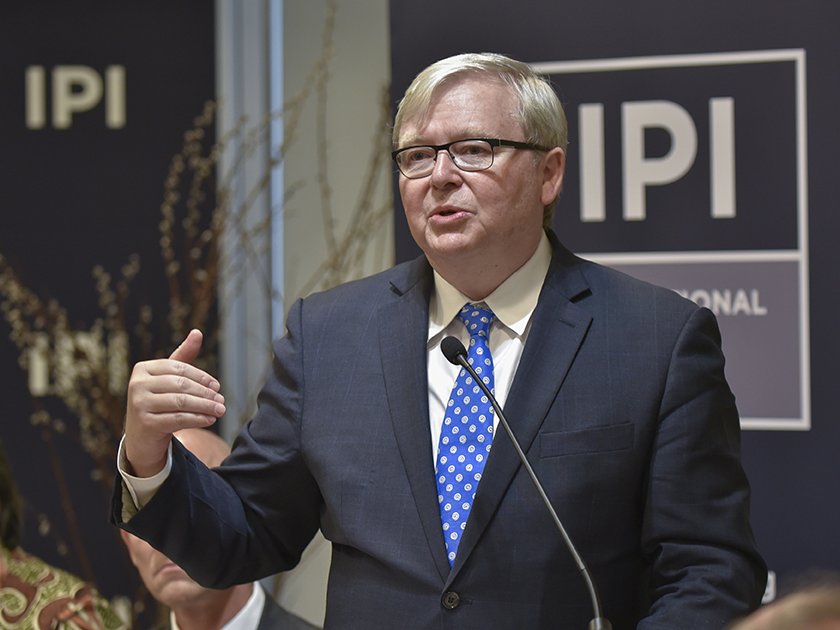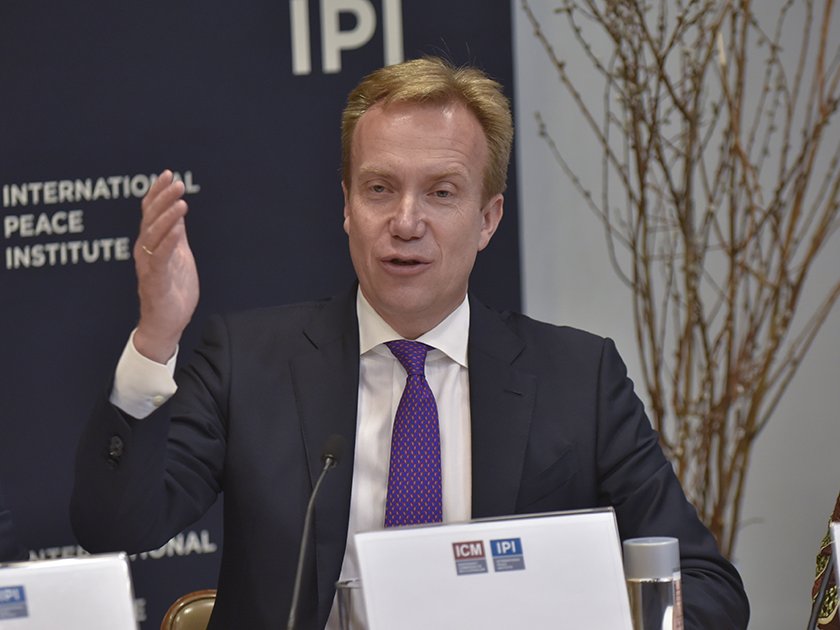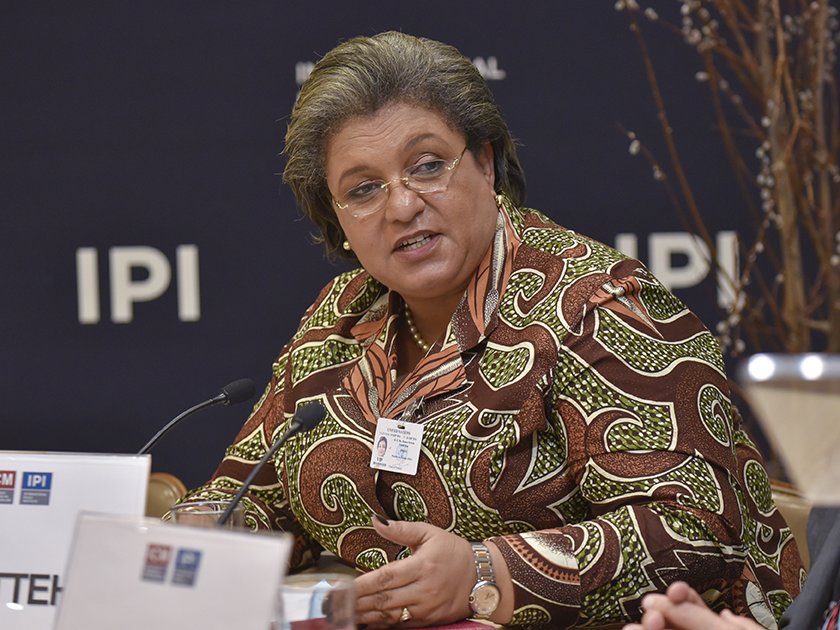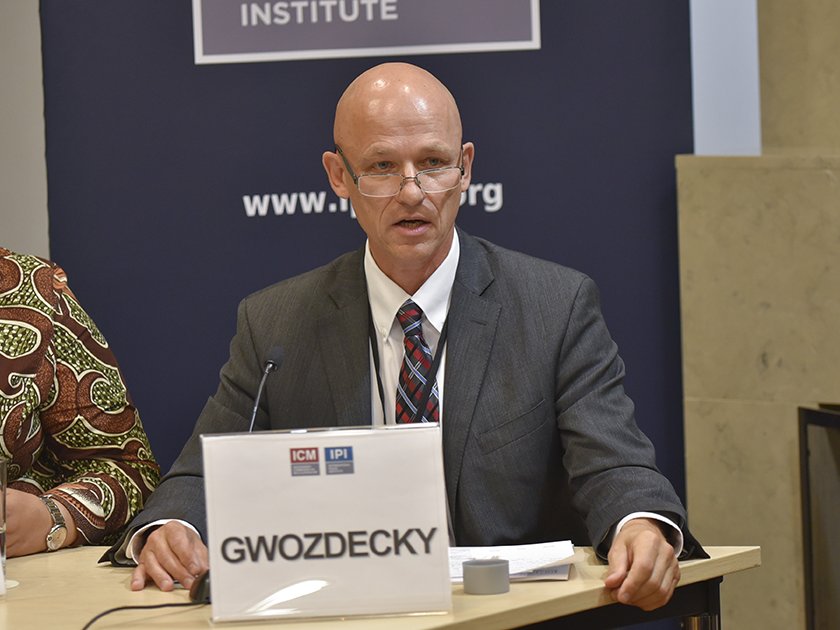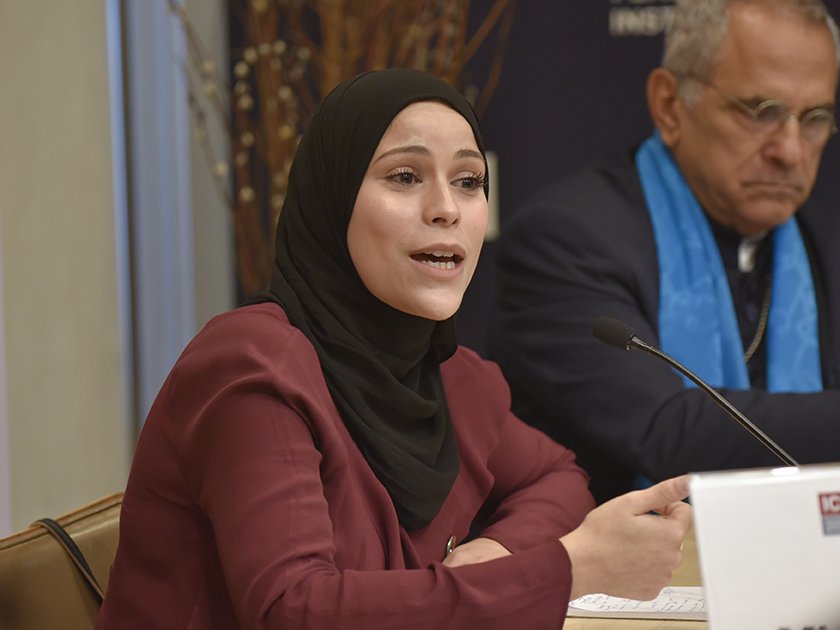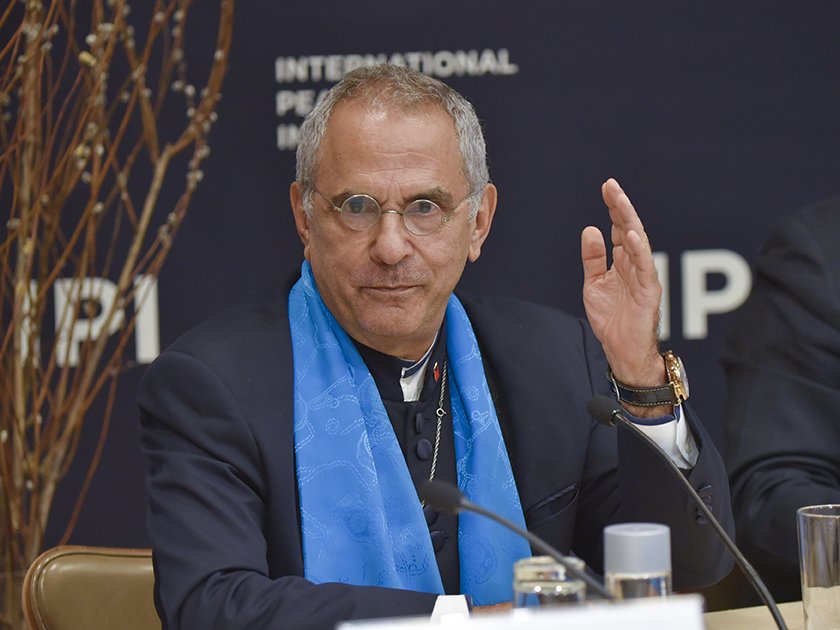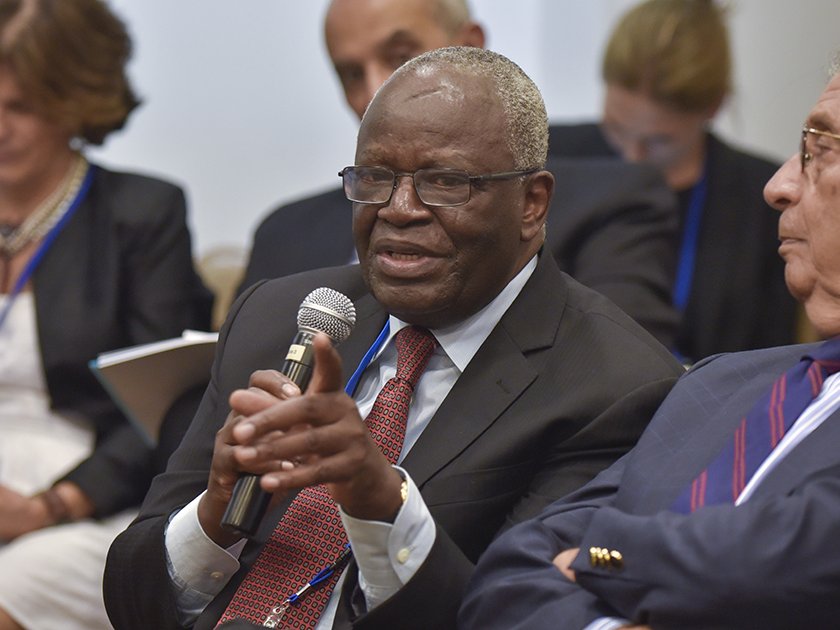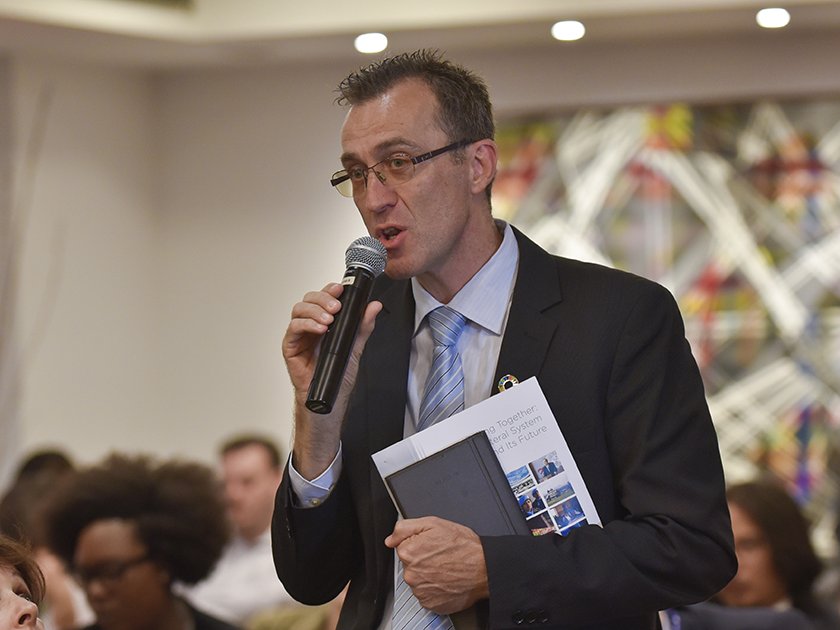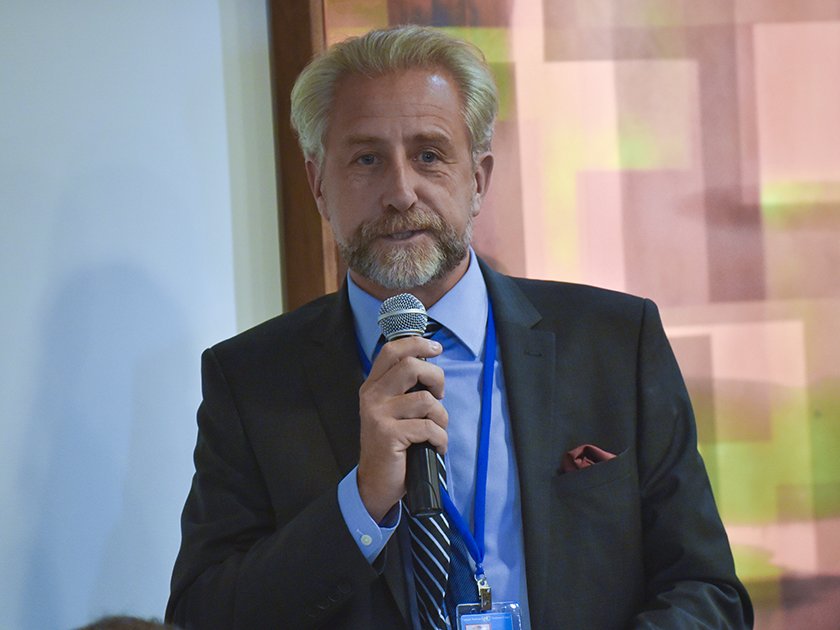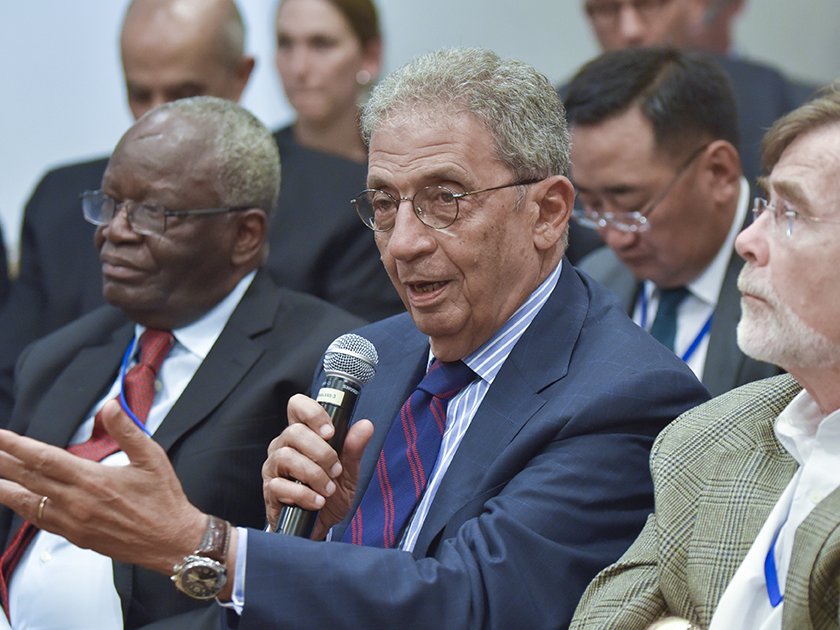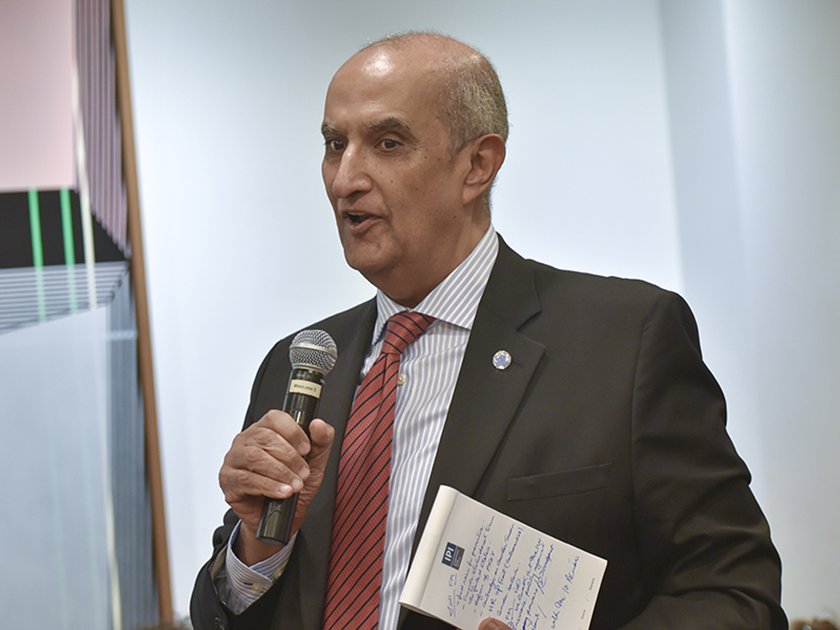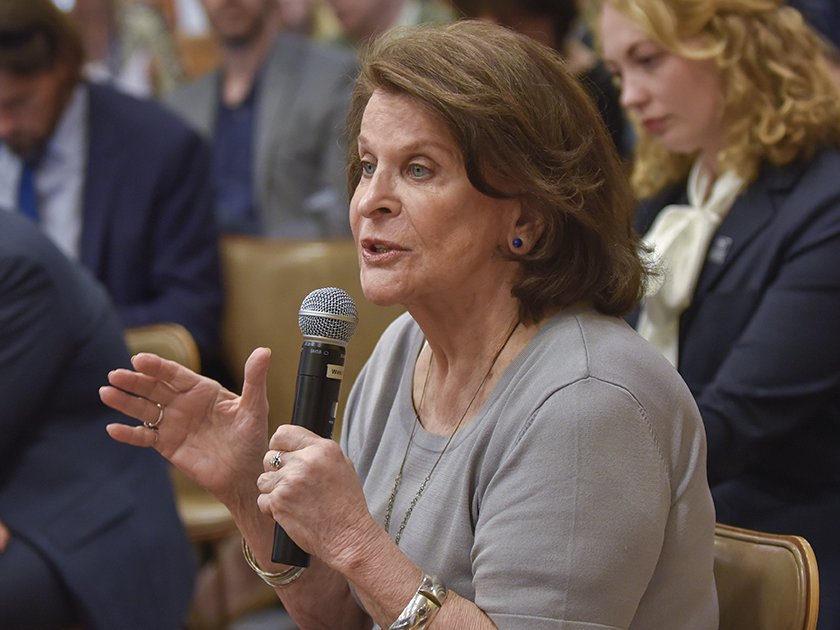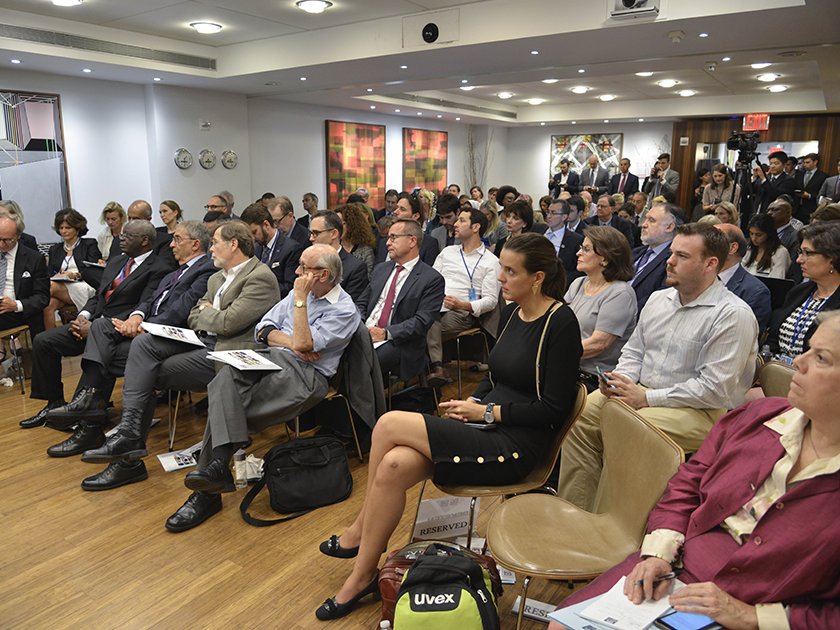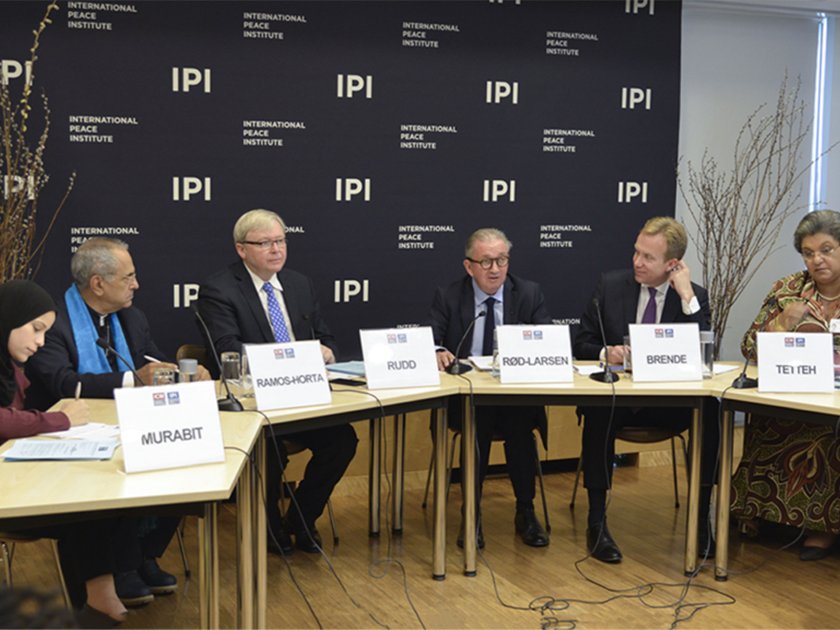An overflow crowd attended the launch of the ICM final report at IPI on September 21 and heard a prediction from one of the co-chairs of the two-year project that the document would soon become essential reading for those plotting the future of the United Nations.
Watch the webcast:
“Regardless of who will be the next Secretary-General,” said Børge Brende, Norway’s Minister of Foreign Affairs, “this document is mandatory for that person to read and internalize.”
Another co-chair, Timor Leste’s former President and Prime Minister José Ramos-Horta, expressed a similar view, noting that the ICM report was now joining several other high level examinations of UN operations and urging people to “make sure that the next Secretary-General make the implementation of these reports an absolute priority for the next six months.”
A third co-chair, Hanna Tettah, Minister for Foreign Affairs and Regional Integration of Ghana, cited the popularity of the UN in her country and said there accordingly was widespread interest in the subject of the report, entitled “Pulling Together: The Multilateral System and Its Future”.
“We believe that the UN is an important part of our system, and we don’t see it as separate from ourselves,” she said. “It is for that reason that many African countries feel that this organization is our insurance policy against the great powers. So we have a very strong vested interest in the efficiency and effectiveness of this organization.”
The concerns taken up in the report, she said, “are not just things we talk about in some kind of abstract. They are real for us. And we want this organization across the road to be able to work with us, to work with the totality of the global community, to deal with these issues and make sure we deal with these challenges now so that they don’t become a problem for us in the years to come.”
The report, product of a highly consultative process begun in September 2014, suggests ten general principles to guide a revitalized UN-based multilateral system and makes concrete recommendations about how to address the specific challenges to the multilateral system across fifteen issue areas.
“Multilateralism is in our DNA,” said Mark Gwozdecky, Assistant Deputy Minister of International Security and Political Affairs of Global Affairs Canada, a principal supporter of the ICM. “We intuitively realize that solutions to our problems don’t come from working alone, but working with others.”
He singled out in particular the report’s emphasis on the need for inclusivity and diversity. “This is music to the ears of my government,” he said.
That point was picked up by another panelist, Alaa Murabit, Sustainable Development Goals Advocate for the UN and founder of “The Voice of Libyan Women”. “I think if we want to actually practice what this report preaches, we have to go back to what this UN was created to do, which is ensure peace through inclusivity and collective action,” she said. “The only way to do that is to make sure everybody is seated at the table and enough of them so it actually makes a difference, not just so it looks good in the pictures.”
Dr. Murabit warmed to a question about the UN’s credibility in the world. “I think what is missing the most from the United Nations is credibility and accountability,” she said. “They have more than enough commitments. You can find a resolution or convention on almost every issue you can think of, but implementation is lacking, and accountability, if there is a lack of implementation, is nonexistent.”
The chair of the ICM, former Australian Prime Minister Kevin Rudd, concluded the panel discussion with some summing up thoughts about the legitimacy of the UN.
“Legitimacy has two parts,” he said, “one is legal legitimacy, which proceeds from international treaties and instruments, and the other is functional legitimacy, which derives from effectiveness, delivery, measurement, and getting the message out that you’ve actually done your job and can produce evidence to that effect.”
He said, “The UN is terrific at the first, and very bad at the second. And that’s where the burden of the logic of this report about what is called a new doctrine of delivery and measurement and effective communication about what has been done is fundamental to the long-term legitimacy of the UN.”
“And it’s doable,” he concluded. “It does require integrated UN operations on the ground, coordinated leadership, and an agreed mandate which integrates the silos into a single UN entity.
“And then there‘s a report card. There’s accountability. There’s measurement. There’s transparency.”
IPI President Terje Rød-Larsen made welcoming remarks and moderated the panel.

